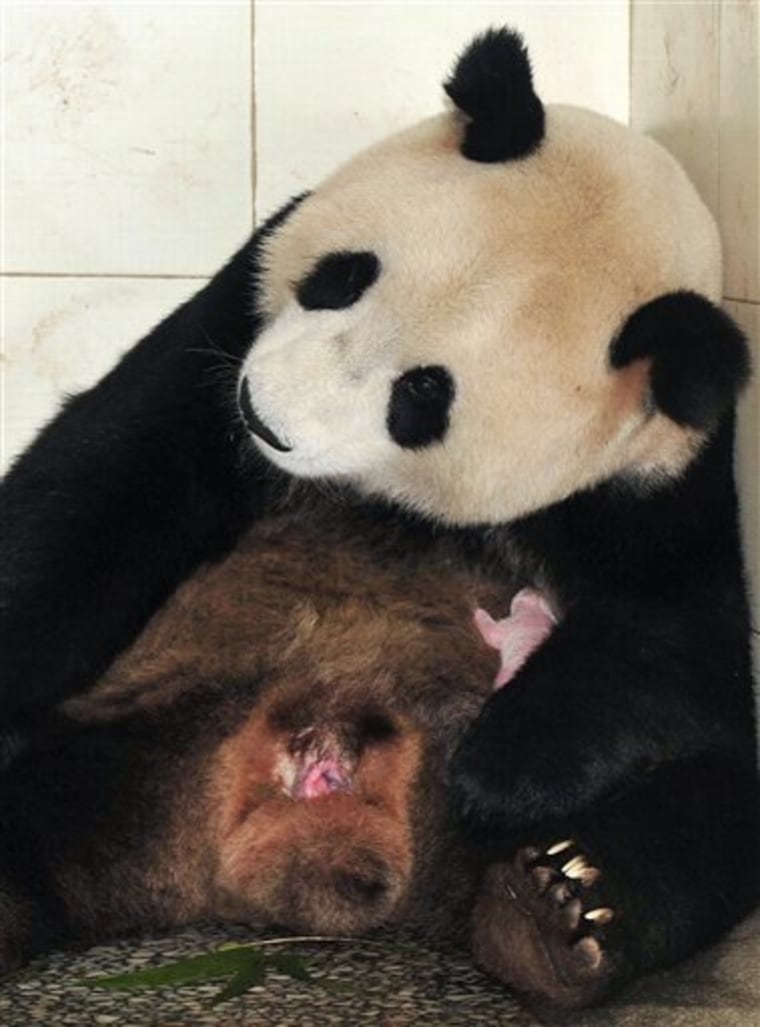An American-born panda gave birth to her eighth cub in southwest China, a rare accomplishment for the endangered species known for being poor breeders.
Hua Mei gave birth to a male cub at 3 a.m. local time on Friday at the Wolong China Giant Panda Research Center in Sichuan province, the official Xinhua News Agency said Friday. The cub weighed 5.7 ounces at birth.
This brings the number of panda births at the Wolong center to 16 this year, equal to last year's total, the report said.
Hua Mei — whose name means China-America — was the first giant panda cub born in the United States in 1999, at the San Diego Zoo, after a decade of failed breeding attempts. She returned to China in 2003 and now has eight cubs, including three sets of twins.
Panda females have only three days a year during which they can conceive — one reason their species is endangered. Some males never succeed at natural breeding, so artificial insemination has become common practice when breeding captive pandas.
Pandas are threatened by loss of habitat, poaching and a low reproduction rate. Females in the wild normally have a cub once every two or three years. The fertility of captive giant pandas is even lower, experts say.
Only about 1,600 pandas live in the wild, mostly in Sichuan province. An additional 290 are in captive breeding programs worldwide.
